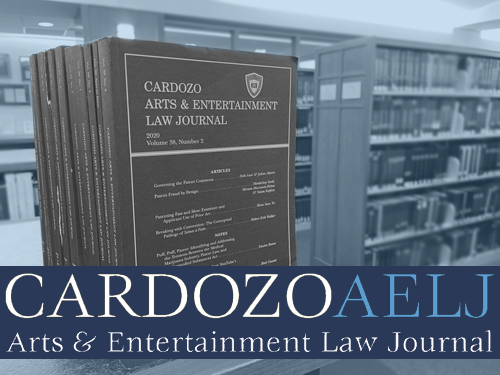Document Type
Article
Publication Date
10-26-2016
Graduation Year
2018
Abstract
Apple is accustomed to being a controversial pioneer in the tech world. Yet, a patent it was recently awarded is garnering more than the usual interest, and not for positive reasons. The patent entitled “[s]ystems and methods for receiving infrared data with a camera designed to detect images based on visible light,” essentially discloses a method for a smartphone’s camera to receive data over infrared waves that could alter the functionality of an iPhone. The patent drawing sheets suggest that the technology be used to disable photography and video capture at live concerts and theater events. A theater or concert venue wishing to employ the technology can be equipped with an infrared transmitter which can emit an infrared signal instructing individual iPhones in the premises to disable video recording capabilities. At a first glance, this technology appears to be only a step from technology currently used to curtail bootlegging at live events, such as requiring patrons to place their cellphones in a pouch that prevents the phone from recording. However, commentators instantly suspected that this technology was different, prompting some to ask whether the technology could eventually be used by the federal government or the police to block photo and video recording at a political protest or another sensitive event, making recording of these events impossible. The use of the newly patented technology in this manner has the potential to affect our First Amendment right to free speech, while simultaneously affecting copyright law. However, a prospective litigant attempting to challenge the use of the technology on First Amendment grounds would face numerous challenges.
This post was originally published on the Cardozo Arts & Entertainment Law Journal website on October 26, 2016. The original post can be accessed via the Archived Link button above.
Recommended Citation
Forrest, David, "Free Speech Implications of Apple’s Patent for Infrared Tech That Can Remotely Disable Video and Photo Recording" (2016). Cardozo Arts & Entertainment Law Journal (AELJ) Blog. 129.
https://larc.cardozo.yu.edu/aelj-blog/129



